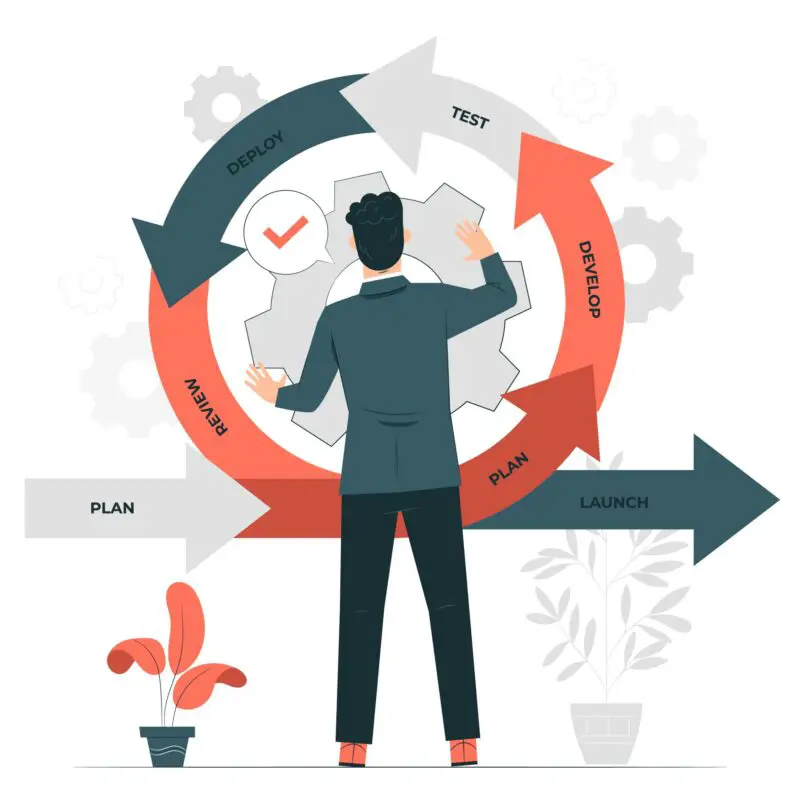Effective relates to achieving intended results, while affective pertains to emotions and feelings, influencing one’s emotional state.
TL;DR Effective Vs. Affective
Effective and affective are two words that are often confused due to their similar pronunciation and spelling. They have different meanings and are used in different contexts. Here’s a breakdown of their meanings:
Effective:
The word “effective” is an adjective that describes something that produces the desired result or has the intended effect. It refers to the capability of achieving a specific goal or purpose. When something is effective, it is successful in accomplishing its intended outcome.
Example: The new marketing strategy was highly effective in increasing sales.
Affective:
The word “affective” is also an adjective, but it relates to emotions, feelings, or attitudes. It refers to the capacity to evoke or influence emotions, moods, or attitudes. Something that is affective has an impact on people’s emotions or can elicit an emotional response.
Example: The affective power of the movie made the audience laugh and cry.
In summary, “effective” pertains to the ability to produce desired results or achieve goals, while “affective” relates to emotional impact or influence. Understanding the distinction between these words is important for using them correctly in various contexts.
What is Effective?
Effective refers to something that produces the desired or intended result. It is often used to describe the ability to achieve a specific goal or objective. Being effective means being successful in accomplishing a task or achieving a desired outcome. For example, a team that consistently meets its sales targets can be considered effective.
Defining Effective
Incorporating the keywords “defining effective” naturally into the provided text:
“Effective” is an adjective that describes something that is successful in producing a desired result. When defining what it means to be effective, it refers to something that is efficient and accomplishes its intended purpose. In order for something to be considered effective, it must successfully achieve the desired outcome or goal.
For instance, when it comes to communication, effective communication is when a message is clearly understood by the recipient and elicits the desired response. In the field of management, effective leadership is when a leader successfully motivates and guides their team towards achieving their objectives.
It is important to note that being effective does not necessarily mean being perfect or flawless. Instead, it focuses on the ability to achieve the desired outcome or goal in a successful manner.
Defining effective involves understanding how something, whether it be a strategy, system, or action, is able to produce the intended results. It entails assessing the efficiency and success of a particular approach or method in achieving its purpose.
Examples of Being Effective
| 1. Meeting deadlines consistently |
| 2. Increasing sales by 20% in the first quarter |
| 3. Implementing cost-saving measures resulting in a 15% reduction in expenses |
| 4. Resolving customer complaints within 24 hours |
| 5. Implementing a new system that improves productivity by 30% |
Being effective in various professional contexts involves achieving desired outcomes and producing favorable results. Here are some Examples of Being Effective:
1. Meeting deadlines consistently: Delivering work or projects within the assigned timeframe demonstrates effectiveness and reliability.
2. Increasing sales by 20% in the first quarter: Effectively implementing sales strategies and initiatives to achieve significant revenue growth indicates a successful sales performance.
3. Implementing cost-saving measures resulting in a 15% reduction in expenses: Demonstrating effectiveness by successfully identifying and implementing measures to reduce costs without compromising quality or efficiency.
4. Resolving customer complaints within 24 hours: Effectively addressing customer concerns promptly and efficiently contributes to customer satisfaction and retention.
5. Implementing a new system that improves productivity by 30%: Developing and implementing a new system or process that significantly enhances productivity demonstrates effectiveness in improving operational efficiency.
What is Affective?
Affective relates to emotions, attitudes, or feelings. It is used to describe the emotional impact or influence of something. Affective can refer to the expression or display of emotions and the way they are experienced or felt. For instance, a touching story that evokes strong emotions can be described as affective.
Key features of affective:
- Emotional Response: Affective experiences involve emotional responses to stimuli or situations. These emotions can range from joy and happiness to sadness, anger, fear, or disgust.
- Mood: Affective states can also refer to long-lasting emotional dispositions or moods that influence an individual’s overall emotional state.
- Subjectivity: Affective experiences are highly subjective and can vary from person to person. Different individuals may have different emotional responses to the same stimulus.
- Internal Experience: Affective experiences primarily occur within an individual’s internal world. They are subjective and may not be directly observable by others.
- Influence on Behavior: Affective experiences can significantly impact an individual’s behavior, motivation, decision-making, and social interactions.
Examples of Being Affective
- Examples of Being Affective: A touching movie scene that elicits strong emotions from the audience
- Examples of Being Affective: A passionate speech that inspires individuals to take action
- Examples of Being Affective: A heartfelt gesture that shows empathy and compassion
- Examples of Being Affective: An advertisement that evokes a strong emotional response and resonates with viewers
- Examples of Being Affective: A piece of artwork that moves people and elicits an emotional connection
When aiming to be affective, it is important to consider the emotions that you want to evoke and the intended impact on the audience. By understanding how to effectively communicate and connect with others on an emotional level, you can create a lasting impression and inspire action.
What is the Difference Between Effective and Affective?
The main difference between effective and affective lies in their meaning and usage:
- Effective: The term “effective” refers to something that produces the desired or intended result, or is successful in achieving a specific purpose. It relates to the ability of an action, process, or thing to accomplish its intended goal. For example, a marketing campaign that generates a high number of sales can be considered effective.
- Affective: On the other hand, “affective” relates to emotions, feelings, or attitudes. It refers to the subjective, emotional response someone has towards something. Affective experiences can include joy, sadness, love, anger, or any other emotional state. For instance, a touching movie scene might elicit an affective response, such as making the viewer feel moved or teary-eyed.
When to Use Effective and Affective?
When it comes to using the words “effective” and “affective,” knowing the appropriate context is key. In this section, we’ll dive into when to use each word and explore their distinct meanings. Discover the power of effective communication and the emotional impact of affective expression. Through practical examples and insights, we’ll unravel the nuanced differences between these two terms and help you wield them effortlessly in your everyday language. Get ready to enhance your language skills in just a few paragraphs!
Appropriate Usage of Effective
- Appropriate usage of effective is when describing something that produces the intended result or achieves its purpose.
- Example: The marketing campaign was effective in increasing sales by 20%.
- Appropriate usage of effective is when referring to something that is successful or accomplished.
- Example: The team’s effective collaboration led to the completion of the project ahead of schedule.
- Appropriate usage of effective is when discussing methods or strategies that are proven to work.
- Example: Time management techniques are effective in improving productivity.
- Appropriate usage of effective is when describing someone’s ability to communicate or influence others.
- Example: The speaker’s effective presentation captivated the audience and left a lasting impression.
- Appropriate usage of effective is when evaluating the impact or outcome of a decision or action.
- Example: The company’s cost-cutting measures were effective in reducing expenses.
Appropriate Usage of Affective
When considering the appropriate usage of affective language, there are several factors to keep in mind:
- Consider the emotional impact: Affective language should be used when you want to evoke certain emotions or create a specific mood. For example, in a marketing campaign for a luxury product, using affective language can enhance the feeling of exclusivity and desire.
- Understand your audience: Different audiences may respond differently to affective language. Consider the demographics, preferences, and cultural background of your audience to determine if affective language is appropriate.
- Align with your brand image: Affective language should be consistent with your brand’s personality and values. If your brand is known for being reassuring and empathetic, using affective language that conveys warmth and care can be effective.
- Use in storytelling: Affective language can be powerful in storytelling to create an emotional connection with your audience. By using vivid and evocative language, you can make your message more memorable and impactful.
- Balance with facts and information: While affective language can be persuasive and engaging, it’s important to provide factual information alongside it. This ensures that your message is well-rounded and credible.
By considering these factors, you can use affective language appropriately to effectively communicate your message and connect with your audience on an emotional level.
Additional Resources
If you want to learn more about the difference between effective and affective, here are some additional resources you can explore:
- Grammarly Blog: The Grammarly blog provides a detailed explanation of the difference between effective and affective, including usage examples and tips for proper usage.
- Merriam-Webster Dictionary: The Merriam-Webster dictionary offers definitions and usage notes for both effective and affective, helping you understand their meanings in different contexts.
- Oxford English Dictionary: The Oxford English Dictionary provides comprehensive definitions and examples for both effective and affective, giving you a deeper understanding of their nuances.
- English Language & Usage Stack Exchange: Visit the English Language & Usage Stack Exchange website, where language enthusiasts and experts discuss various language-related topics. You can find discussions and explanations about the difference between effective and affective by searching the site.
- Online Language Forums: Participate in online language forums such as WordReference or Reddit’s r/grammar to seek advice and clarification from language experts and native speakers regarding the distinction between effective and affective.
By exploring these additional resources, you can further enhance your understanding of the difference between effective and affective and confidently use these words in the appropriate contexts.
Frequently Asked Questions
What’s the difference between “effective” and “affective”?
The words “effective” and “affective” have different meanings and are often confused. “Effective” refers to something that is having the desired effect or having any effect at all, while “affective” describes something that influences or causes feelings or emotions and can also describe how these emotions are expressed.
Can you give examples of “affective” in a sentence?
Examples of “affective” in a sentence include: “Her affective disorder made it difficult for her to work a standard job,” and “Cognitive bias can be suggested by several affective factors.”
What are some synonyms for “effective”?
Some synonyms for “effective” include actual, efficient, efficacious, operative, productive, and proficient.
Is “effective” commonly used compared to “affective”?
“Effective” is a much more commonly used word than “affective.” It is typically used to mean “having the intended effect,” but can also mean having any effect at all, being in effect, or being actual. “Affective,” on the other hand, is always used in relation to feelings or emotions and is not commonly used in other contexts.
What’s the importance of understanding the difference between “effective” and “affective”?
Understanding the difference between “effective” and “affective” is important because it allows for proper functionality in communication and helps to convey the intended meaning. It is particularly important in fields such as psychology, where “affective” has a specific meaning related to emotional development.
Does accepting all cookies on Reddit affect the use of non-essential cookies?
By accepting all cookies on Reddit, users agree to the use of cookies to improve Reddit’s quality, personalize content and advertising, and measure advertising effectiveness. However, rejecting non-essential cookies may still allow Reddit to use certain cookies for platform functionality.
Where can I find more information about “effective” and “affective”?
You can find more information about the difference between “effective” and “affective” in the Scribbr article titled “Affective vs Effective.” The article provides a detailed explanation, examples, practice sentences, and insights into the commonly confused words.
Image Credits
Featured Image By – storyset on Freepik








